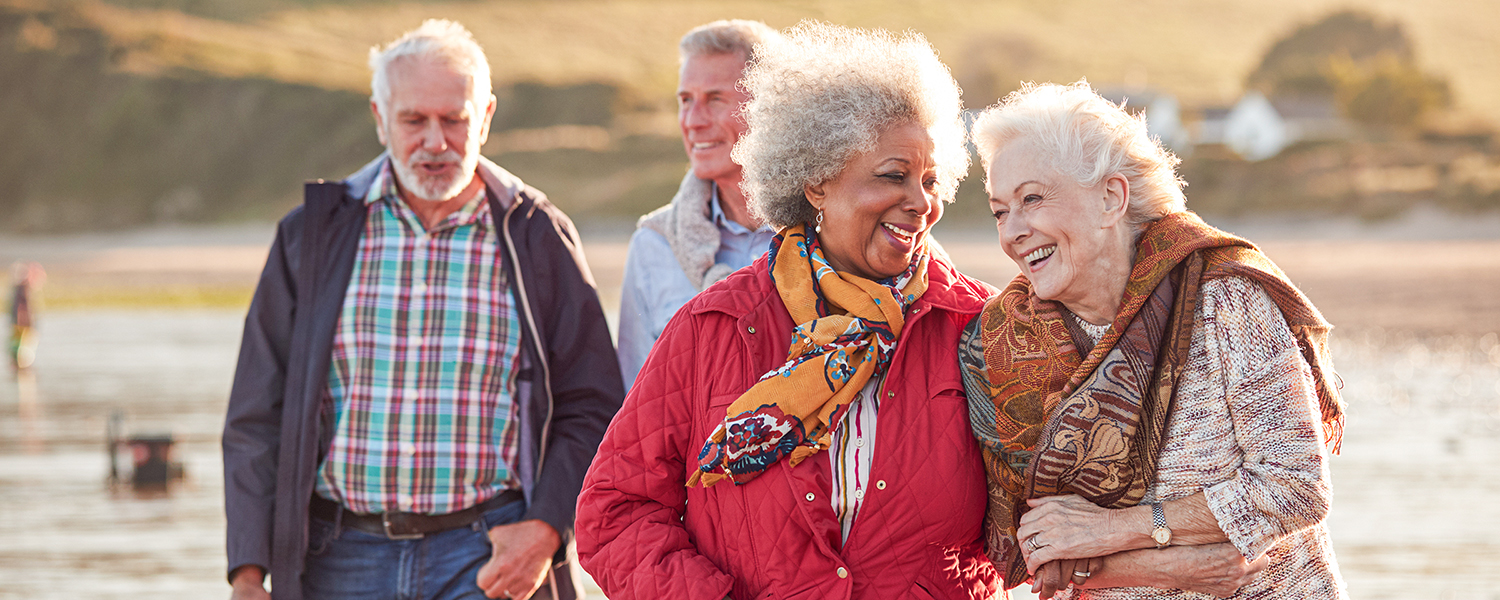Kent Hospital and our community recognized September as National Falls Prevention Awareness Month. But falls prevention isn’t just a September priority – it’s something we should keep in mind all year long, especially as we head into the “-ber” months when seasonal changes can bring new risks.
Seasonal Changes in Southern New England
- Fall…or should we say “Autumn”?
New England is known for its stunning foliage this time of year, but fall also comes with some hidden hazards.
1. Leaves and Other Natural Debris: Wet leaves can create slippery surfaces. Falling acorns, sticks, and leftover yard tools can all become tripping hazards. Keep walkways clear and store garden supplies after use.
2. Pacing Yourself: When raking, work in smaller sections and take breaks. If you’re prone to dizziness or blood pressure changes, be mindful of shifting from bending to standing upright.
While recent winters have been milder, every New Englander knows not to put the shovel away too soon!
1. Walk Like a Penguin: Ice, slush, and melted snow can cause slips both outdoors and indoors. Keep your hands out of your pockets, take wider steps, and move slowly to stay steady.
2. Daylight Savings Shift: Shorter days mean more time in the dark. Give your eyes time to adjust when moving between light and dark areas, use sunglasses appropriately, and if you wear transition lenses, let them clear before resuming activity.
4 Falls Prevention Tips
1. Review Your Medication
Taking multiple medications (often four or more) can increase your risk of falling. Never adjust prescriptions on your own – schedule time with your physician or pharmacist to review your complete medication list.
2. Exercise: Variety Is Key
The American College of Sports Medicine recommends that older adults aim for 150 minutes of moderate-intensity exercise per week. A balanced routine should include:
- Aerobic activity
- Resistance training
- Flexibility work
- Balance exercises (at least 150 minutes per week or ~50 hours total over time to see meaningful results)
The payoff? Those who commit to regular balance exercises can lower their risk of falls by 47%.
3. Footwear: Build a Solid Foundation
Your feet are your first point of contact with the ground – make sure your shoes are helping, not hurting. Choose safe, supportive footwear and consider seasonal weather changes when selecting shoes. The CDC has useful resources on choosing fall-prevention-friendly footwear.
4. It Starts at Home
Small changes around your home can make a big difference:
- Remove clutter and tripping hazards like throw rugs, shoes, and toys.
- Improve lighting in hallways and add nightlights between the bedroom and bathroom.
- If you have stairs, ensure railings are secure and in good condition.
Your Health Care Team: Partners in Prevention
Falls prevention doesn’t happen alone. Your care team can help:
- Primary Care Physician: Ask about your personal fall risk and request referrals to specialists if needed.
- Physical Therapist (PT): Helps design safe exercise plans tailored to your needs.
- Occupational Therapist (OT): Evaluates your home and daily activities for safety improvements.
- Podiatrist: Addresses foot health, footwear, pain, and balance issues.
- Audiologist: Hearing loss triples fall risk. A hearing test can help keep you safer.
- Optometrist: Vision loss doubles fall risk. Eye exams can detect conditions like glaucoma and cataracts that may increase your risk.
How to Get Started
If you or someone you love is noticing changes in mobility, strength, dizziness, or even a fear of falling, it’s time to have a conversation with your healthcare provider.
At Kent Hospital and across Care New England, our teams are here to help you take the first steps toward a safer, more confident lifestyle – because falls prevention begins today, and it starts with you.

 Keeping Falls Prevention Top of Mind Year-Round"
class="bg-img"
fetchpriority="high"
loading="eager"
decoding="async">
Keeping Falls Prevention Top of Mind Year-Round"
class="bg-img"
fetchpriority="high"
loading="eager"
decoding="async">